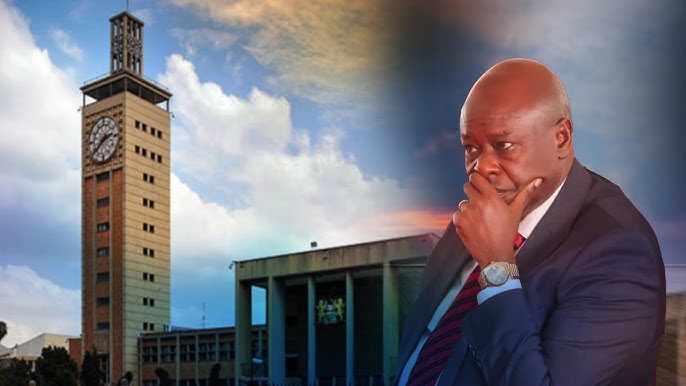
Rigathi Gachagua Impeachment
Impeachment in the News: What It Would Take to Impeach Deputy President Rigathi Gachagua
All can attest the previous weeks, discussions around the potential impeachment of Kenya’s Deputy President Rigathi Gachagua have gained momentum. From rumors to open political confrontations, this topic has fueled debates across social media, parliament, and various media outlets. But what does impeachment mean in the Kenyan political context? What are the legal, constitutional, and political steps required for such an event to occur? And how does this situation reflect on Gachagua’s political standing and future?
Here we seek to provide factual insight into what it would take to impeach Deputy President Rigathi Gachagua, the constitutional mechanisms involved, and the broader implications.
The Constitutional Basis for Impeachment
In Kenya, the Constitution is clear on the grounds and process for impeaching high-ranking government officials, including the Deputy President. According to Article 150 of the Constitution, the Deputy President can be removed from office on two key grounds:
- Gross violation of the Constitution or any other law.
- Inability to perform the functions of the office due to physical or mental incapacity.
In addition to these grounds, the Constitution outlines a clear process for impeachment. The motion must be supported by at least one-third of the members of the National Assembly. Upon meeting this threshold, the National Assembly then considers the motion, and if a majority supports it, it is forwarded to the Senate. The Senate then sets up a special committee to investigate the charges. If the committee recommends the removal of the Deputy President, a two-thirds majority vote in the Senate is required to finalize the impeachment.
Testing the Waters: Gachagua’s Political Future
In recent developments, there have been growing murmurs about a potential impeachment motion targeting Deputy President Rigathi Gachagua. Reports from Nation and The Star indicate that certain political factions are “testing the waters,” gauging the public and political appetite for such a move. These discussions are not happening in a vacuum; they stem from ongoing political wrangling within President William Ruto’s administration. Especially, criticisms surrounding Gachagua’s recent remarks and conduct.
Political analysts argue that Gachagua’s role as Deputy President, particularly his assertive style of leadership, has placed him at odds with several political players. Notably, both within the government and the opposition. For instance, during a public appearance, Gachagua remarked on being a “co-president,” which many interpreted as undermining President Ruto’s leadership.
The Political Realities of Impeaching Gachagua
Despite the growing speculation, successfully impeaching a Deputy President is no easy feat. The Constitution sets a high bar for impeachment, and even if the motion gains traction, it would require significant political coordination.
First, any move to impeach Gachagua would need the support of at least one-third of the National Assembly. Thus, means gathering enough MPs who are either disillusioned with Gachagua or aligned with political forces seeking his removal. This in itself would be a tall order, given that Gachagua enjoys considerable support, particularly from his base in the Mt. Kenya region.
Even if the motion passes in the National Assembly, the Senate would present another hurdle. A special committee, composed of senators, would have to investigate the charges against Gachagua. Only if the Senate determines that there is sufficient cause to proceed with the impeachment, and if two-thirds of senators support the motion, can Gachagua be removed.
Moreover, Gachagua’s political allies, particularly within President Ruto’s United Democratic Alliance (UDA) party, have already started sharpening their claws, ready to defend him against any impeachment attempts. Recent news reports highlight that key figures within the UDA are working behind the scenes to ensure that any impeachment motion is quashed before it gains momentum.
The Role of Public Opinion and Media
While impeachment is a legal process, public opinion plays a critical role. In Kenya’s vibrant political landscape, the media often amplifies political struggles. Hence, shaping narratives that can either bolster or undermine leaders’ public standing.
Gachagua has remained a controversial figure in Kenyan politics, often drawing both praise and criticism. His wife, Dorcas Rigathi, has also been a subject of public interest. Especially, with her philanthropic activities and religious leadership gaining significant attention. For instance, searches for “Dorcas Gachagua” and “Dorcas Rigathi biography” reflect growing public curiosity about the Deputy President’s family and background. This attention, whether positive or negative, affects how the public perceives Gachagua’s leadership and, by extension, his impeachment prospects.
Media outlets like The Star and Citizen Digital have been covering the impeachment story extensively, focusing on Gachagua’s controversial remarks and the subsequent backlash from various political leaders. Notably, National Assembly Deputy Speaker Gladys Boss openly stated that she would be in charge of any impeachment proceedings against Gachagua. Notably, a bold declaration that signals the seriousness of the political tension brewing in Nairobi.
The Historical Context: Impeachment in Kenya
Impeachment is not a common occurrence in Kenyan politics, but it is not unprecedented. One of the most high-profile impeachments in recent years was that of Nairobi Governor Mike Sonko in 2020. The process highlighted the political complexity involved, as Sonko’s allies fought fiercely to block the motion, although it eventually passed.
For Gachagua, the stakes are even higher. Unlike a governor, the Deputy President holds a national office, and his impeachment would have profound political implications for the entire administration. It could signal cracks within the ruling coalition, which could be exploited by the opposition.
What Lies Ahead?
While impeachment remains a possibility, the road to removing Deputy President Rigathi Gachagua is fraught with challenges. Constitutionally, it requires substantial political coordination and support, both in the National Assembly and the Senate. Politically, Gachagua’s loyal base, particularly in Mt. Kenya, and his allies in the UDA are likely to rally behind him. Hence, making it difficult to gather the necessary votes for impeachment.
Nevertheless, the ongoing speculation and discussions around impeachment underscore the volatile nature of Kenyan politics. Whether Gachagua is impeached or not, the current political climate will test the resilience of both the Deputy President and the administration of President William Ruto.
As the nation watches closely, Gachagua’s future remains uncertain, with his political career hanging in the balance amidst this growing controversy.





